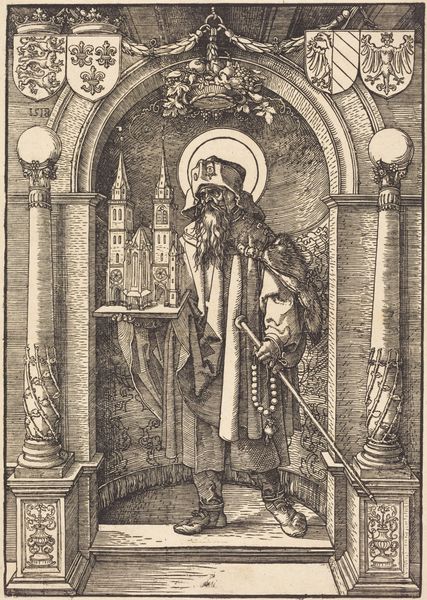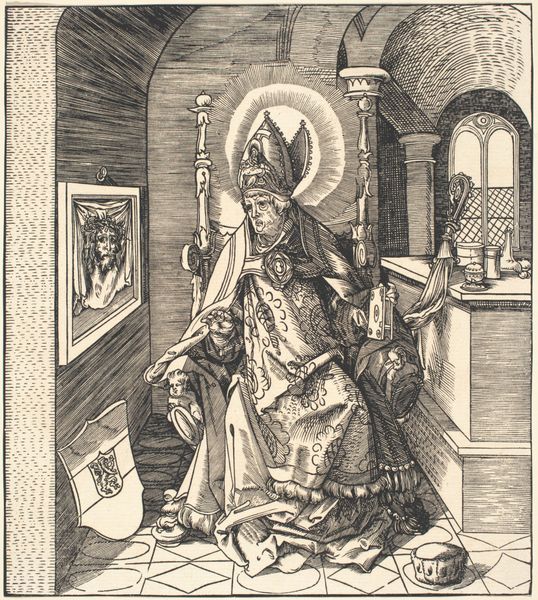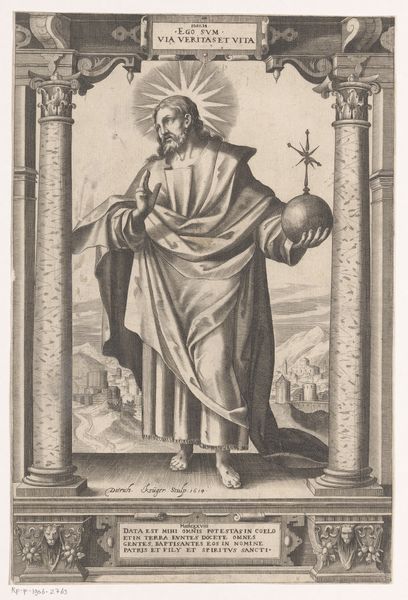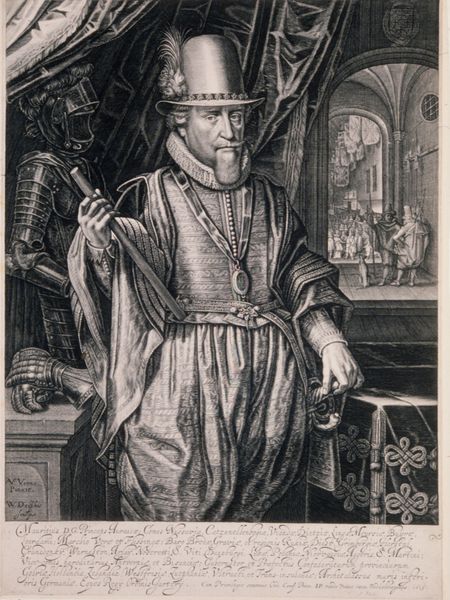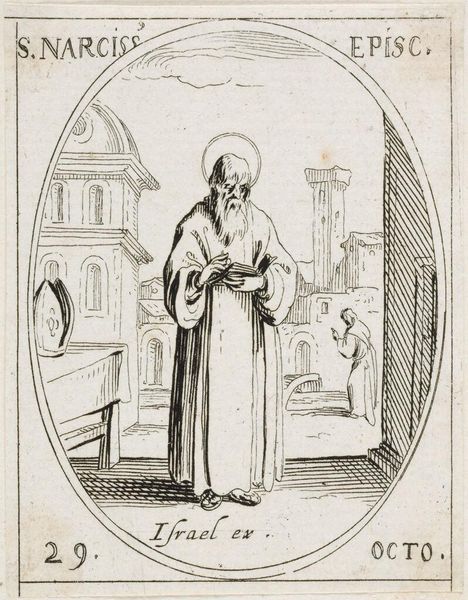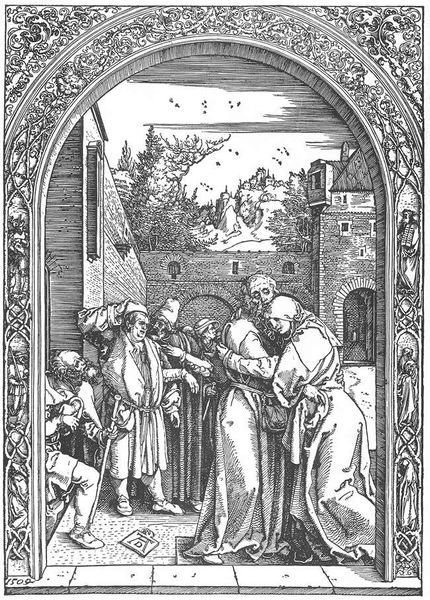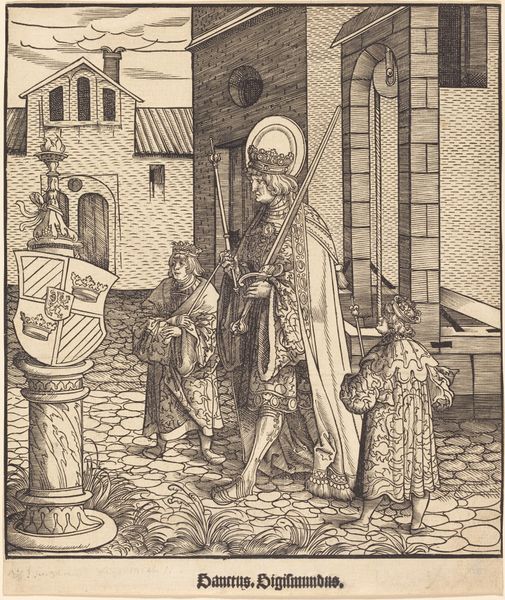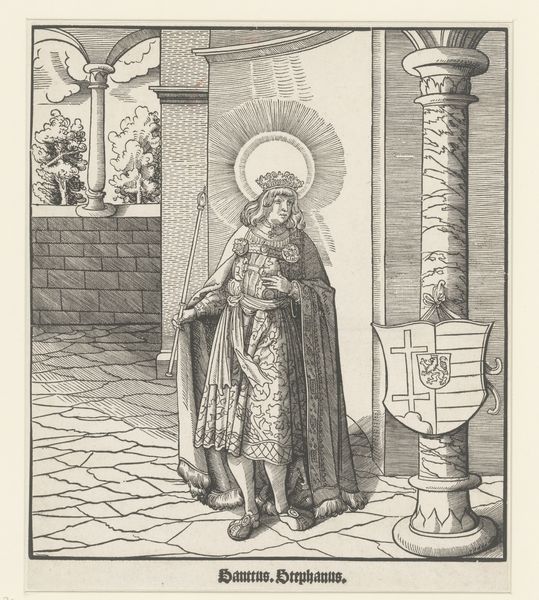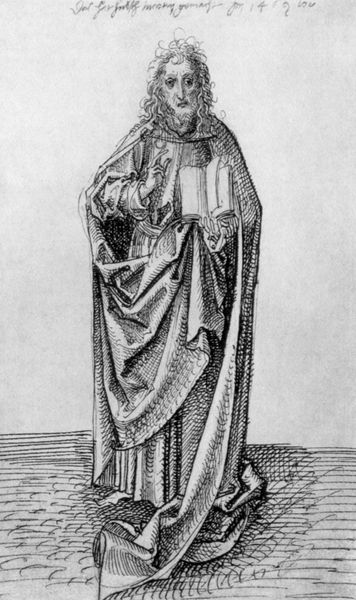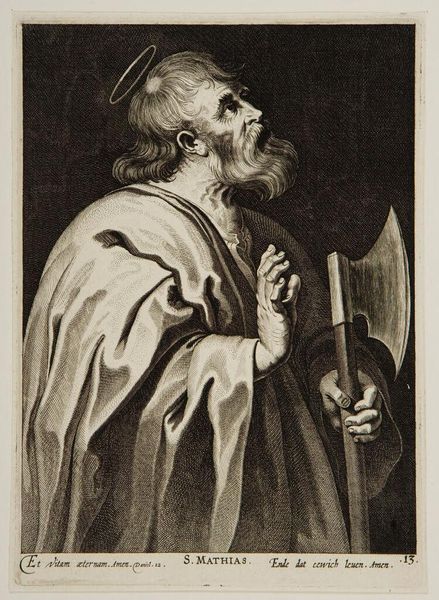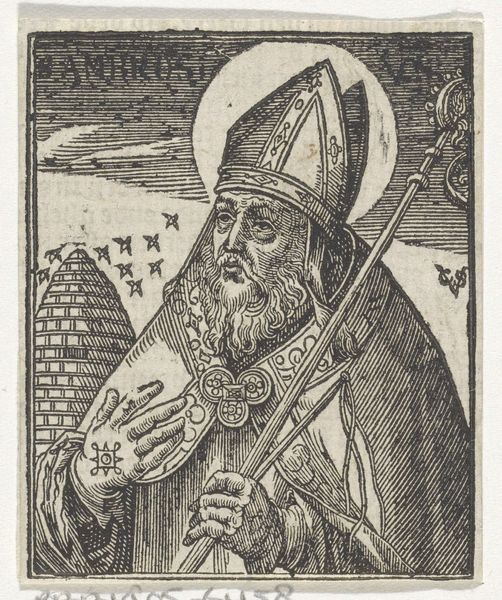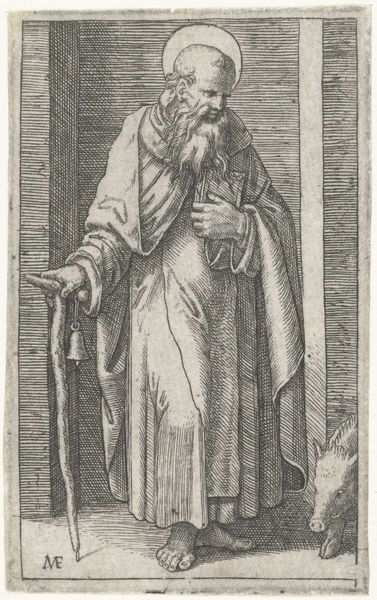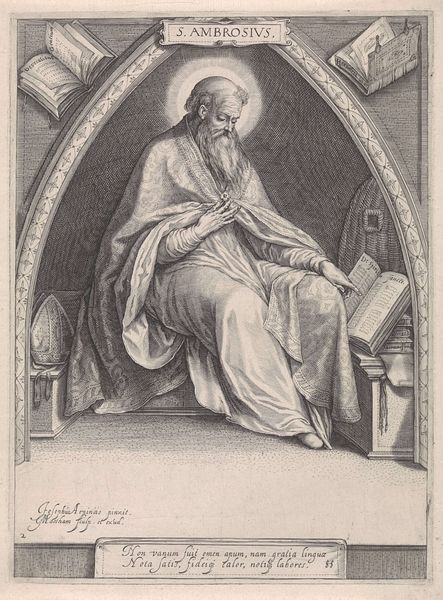
print, woodcut
#
portrait
# print
#
prophet
#
holy-places
#
male-portraits
#
woodcut
#
pen work
#
history-painting
#
northern-renaissance
Copyright: Public domain
This print of Saint Sebald was made by Albrecht Durer in 1518 using the demanding technique of woodcut. Woodcut is a relief printing process, where the image is carved into a block of wood, leaving raised areas that take the ink and create the final image. Looking closely, you'll notice the intricate level of detail. Durer’s skill is evident in the delicate lines that define the saint's garments, beard, and the miniature model of the church he holds, which testifies to his patronage. Woodcut demands precision and control; each line requires careful carving, and mistakes are difficult to correct. This labor-intensive process reflects the broader context of printmaking during the Renaissance, when the rise of printed images democratized art, making it more accessible to a wider audience. The material and process are crucial to understanding Durer's achievement. Woodcut is not merely a reproductive technique, but a medium that shapes the aesthetic and cultural significance of the artwork. It challenges us to look beyond the image, and appreciate the work and the process involved in its creation.
Comments
No comments
Be the first to comment and join the conversation on the ultimate creative platform.
